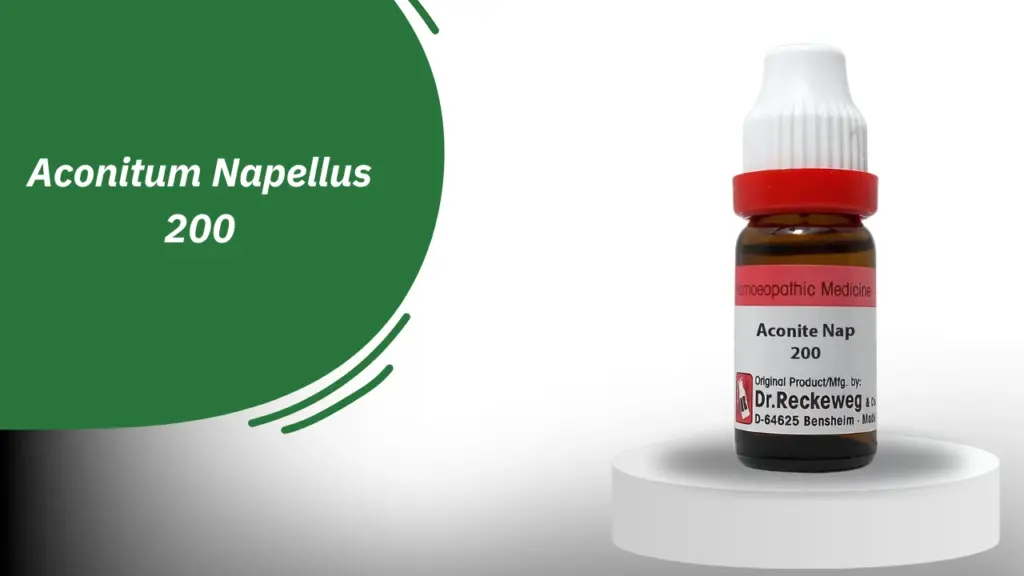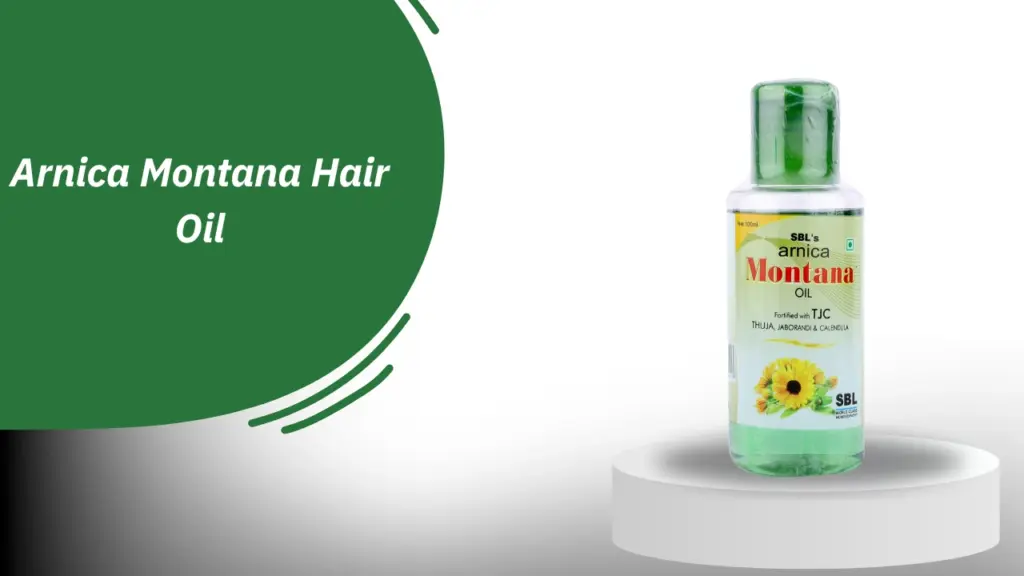Alopecia areata is an autoimmune condition that causes unpredictable hair loss. Many people are looking for natural ways to stop hair loss and feel confident again. Homeopathic treatment is a safe and effective way to address hair loss.
This guide will look into homeopathic remedies for alopecia areata. We’ll talk about natural compounds that help hair grow back. We’ll also cover the importance of diet, managing stress, and using topical treatments for a holistic approach to hair loss.

Key Takeaways
- Homeopathic treatments offer a natural and safe alternative for managing alopecia areata.
- Specific homeopathic remedies like Thuja Occidentalis, Phosphorus, and Sepia have been shown to effectively stimulate hair regrowth.
- Dietary support, stress management, and topical applications can further enhance the effectiveness of homeopathic treatment.
- Integrating homeopathic approaches with traditional medicine can provide a comprehensive solution for long-term hair loss management.
- Proper prevention strategies and maintenance care are crucial for sustained hair health and regrowth.
Understanding Alopecia Areata: Causes and Symptoms
Alopecia areata is an autoimmune disorder that leads to patchy hair loss on the scalp and other areas. The exact causes are still a mystery. But, it’s thought to be linked to genetics and environmental factors, including stress-induced alopecia.
Common Triggers and Risk Factors
Stress is a big factor in alopecia areata. High stress can weaken the immune system, attacking hair follicles. People with a family history of autoimmune diseases are also at higher risk.
Recognizing Early Warning Signs
- Sudden smooth, round bald patches on the scalp
- Thinning or patchy hair loss on eyebrows or beard
- Tingling or itching on the scalp health before hair loss
Impact on Physical and Emotional Well-being
Hair loss can really hurt a person’s self-esteem and mood. Alopecia areata’s unpredictability can cause anxiety, depression, and isolation. It can also change how a person looks, making these feelings worse.
“Alopecia areata has been a constant struggle, but I’ve learned to embrace my unique appearance and focus on self-care. The support of family and friends has been invaluable in my journey.”
The Science Behind Homeopathic Treatment for Alopecia Areata
Homeopathy believes the body can heal itself. This idea is key in treating alopecia areata, a condition causing patchy hair loss. Homeopathic remedies try to boost the body’s healing and balance the immune system. This could help stimulate hair follicles and encourage hair growth.
Homeopathy treats alopecia areata by focusing on the root cause, not just the symptoms. Practitioners look for imbalances or stressors in the body. They believe fixing these can balance the immune system and help hair follicles grow again.
Homeopathic remedies might work by controlling the immune system. Alopecia areata is an autoimmune disease where the immune system attacks hair follicles. These remedies could help reduce this attack, letting hair follicles grow normally.
Some homeopathic remedies also help stimulate hair follicles and grow healthy hair. They might improve blood flow, nourish the scalp, and support hair follicle health.
“Homeopathic treatment for alopecia areata aims to address the underlying imbalances in the body, promoting a holistic healing response that can potentially restore hair growth.”
While more research is needed, homeopathy’s principles and methods show promise. They offer a natural way to tackle hair loss concerns.
Essential Homeopathic Remedies for Hair Loss
Homeopathic medicines offer a gentle, yet effective solution for treating alopecia areata. These natural remedies are tailored to address the root causes of the condition. They provide an individualized treatment approach. Let’s explore three key homeopathic remedies that have shown promising results in promoting hair regrowth.
Thuja Occidentalis Benefits
Thuja Occidentalis, also known as the “tree of life,” is a renowned homeopathic medicine for scalp health and hair growth. This potent remedy is believed to help regulate the immune system. It reduces the autoimmune response that can trigger alopecia areata.
Thuja Occidentalis is often prescribed to address circular patches of hair loss. It may stimulate the follicles and promote the regeneration of healthy hair.
Phosphorus Applications
Phosphorus is another essential homeopathic medicine for hair loss. This natural nutrient-rich remedy is thought to enhance the absorption of essential vitamins and minerals. It provides the necessary building blocks for strong, vibrant hair.
Phosphorus may be particularly beneficial for individuals experiencing diffuse hair shedding or thinning. It can help nourish the scalp and follicles.
Sepia Usage and Effects
Sepia, derived from the ink of the cuttlefish, is a homeopathic remedy that addresses hormonal imbalances. A common contributing factor to alopecia areata. By regulating the body’s hormonal fluctuations, Sepia may help stabilize the hair growth cycle and prevent further hair loss.
This remedy is often recommended for individuals experiencing hair loss alongside other hormonal symptoms. Such symptoms include mood changes or irregular menstrual cycles.
Remember, the key to effective homeopathic treatment for alopecia areata is to work closely with a qualified homeopathic practitioner. They can assess your unique symptoms and constitution. This ensures an individualized and tailored approach to your hair loss journey.
Natural Dietary Support for Hair Regrowth
If you’re struggling with alopecia areata, the right nutritional supplements can help. They are a strong ally in your fight for healthy, vibrant hair.
The key nutrients for hair growth are biotin, zinc, iron, and vitamin D. These nutrients work together to keep your hair follicles healthy. They help your hair grow back and stop it from falling out.
- Biotin is a B-vitamin that helps make keratin, the main protein in hair.
- Zinc is important for cell growth and making proteins, both key for hair growth.
- Iron helps carry oxygen to hair follicles, giving them the nourishment they need.
- Vitamin D is linked to healthy hair follicles and may help grow new hair.
Adding these nutritional supplements to your diet can help your body. You can get them from whole foods or supplements. A balanced diet is key for healthy, vibrant hair.
Stress Management Techniques to Combat Hair Loss
Stress plays a big role in alopecia areata, a condition that causes sudden hair loss. Using stress-reducing strategies can help with homeopathic treatments. It also promotes healthier hair growth.
Meditation and Mindfulness Practices
Meditation and mindfulness lower cortisol levels, a stress hormone. These practices help find calm, reduce anxiety, and improve outlook. All these help hair health.
Exercise and Physical Activity
Regular exercise fights stress-related hair loss. It regulates cortisol and boosts blood flow. This delivers nutrients to the scalp and hair follicles.
Sleep Quality Improvement
Good sleep is key for stress management and well-being. A consistent sleep schedule and relaxing bedtime routine help. They improve sleep quality, which benefits hair growth and resilience.
| Stress Reduction Technique | Benefits for Hair Health |
|---|---|
| Meditation | Lowers cortisol levels, promotes relaxation |
| Exercise | Regulates cortisol, improves blood circulation |
| Sleep Quality | Supports overall well-being, reduces stress |
Adding these stress management techniques to daily life helps with alopecia areata. It’s a big step towards better hair health and homeopathic treatment success.
“Stress management is not just a luxury, but a necessity for those battling hair loss conditions like alopecia areata. By prioritizing relaxation and self-care, individuals can empower themselves and create an environment conducive to hair regrowth.”
Topical Applications and Hair Care Methods
Getting shiny, healthy hair is more than just homeopathic treatments. Adding gentle scalp care to your routine can help fight hair loss. Techniques like scalp massages and using natural hair products boost blood flow and reduce inflammation. They help create the best conditions for hair to grow back.
Scalp Massage for Improved Circulation
Scalp massages with your fingertips can greatly improve hair health. This easy practice boosts blood flow to the hair follicles. It brings vital nutrients and oxygen for new hair growth. Try scalp massage for a few minutes each week to see the difference.
The Power of Essential Oils
Some essential oils are great for hair growth. Oils like rosemary, peppermint, and lavender calm the scalp, reduce swelling, and wake up hair follicles. Mix a few drops of these oils with a carrier oil and apply to your scalp for a special treat.
Embracing Natural Hair Products
Regular hair care products can harm thin or weak hair. Choose natural hair products instead. They’re made with gentle, nourishing ingredients that help your scalp and hair. Look for shampoos, conditioners, and serums without sulfates, parabens, and other harsh chemicals.
Adding these hair care steps to your daily routine helps your homeopathic treatments work better. It promotes hair growth and makes your hair stronger.

“Caring for your scalp and strands with natural, nourishing products is just as important as the homeopathic remedies you take internally.”
Combining Homeopathy with Traditional Medicine
Managing alopecia areata well often needs a holistic approach. This means using complementary therapies along with traditional medicine. Working with healthcare experts helps create a treatment plan. This plan uses homeopathic remedies and keeps an eye on overall health.
Integration Strategies
Success in mixing homeopathy with traditional medicine comes from good communication. Patients should talk to their doctors about using homeopathic remedies. This way, natural therapies and medical treatments work together well.
Monitoring Progress
Regular check-ups are key when using both homeopathic and traditional treatments. Doctors can watch how the treatments work together. They can make changes if needed to get the best results.
When to Adjust Treatment
Since everyone’s experience with alopecia areata is different, treatment plans might change. Patients should talk to their healthcare team about any changes. This helps make the treatment plan better for each person.
“Integrating homeopathic and conventional treatments for alopecia areata can be a powerful way to address the condition from multiple angles and promote lasting hair regrowth.”
Success Stories and Treatment Outcomes
Homeopathic treatments for alopecia areata have shown great results. People who tried these natural remedies have seen amazing before and after results. These stories prove the long-term benefits of homeopathy.
Sarah, a 35-year-old professional, had patchy hair loss for years. She tried many treatments but nothing worked. Then, she found homeopathy and finally found relief.
“After just a few months of consistent homeopathic treatment, my hair started to grow back stronger and healthier than ever before. The patient testimonials I had read online gave me hope, and now I’m thrilled to share my own success story.”
John, 42, was diagnosed with alopecia areata at 25. He thought he’d live with it forever. But, he tried homeopathic remedies and saw a change.
| Before | After |
|---|---|
| Severe hair loss and bald patches | Thick, healthy hair regrowth |
John’s before and after results are impressive. His hair regrew with homeopathic remedies. He now has a full head of hair. “It’s been a game-changer for me,” he says.
These stories are just a few of many patient testimonials. They show how homeopathic treatment can change lives. While results vary, these stories offer hope and inspiration to those facing hair loss.
Prevention Strategies and Maintenance Care
To keep your hair healthy and prevent alopecia areata, you need a complete plan. Long-term tips and lifestyle changes can help your scalp stay healthy. This way, you can lower the chance of losing more hair.
Long-term Management Tips
Sticking to homeopathic treatments is crucial for hair growth. Keep working with your doctor to check your progress and change treatments if needed. Also, do scalp massages and hair care that feeds your follicles.
Lifestyle Modifications
Living a holistic lifestyle helps a lot in preventing hair loss and keeping your scalp healthy. Eat a diet full of protein, vitamins, and minerals to help your hair grow. Also, do things that help you relax, like meditation or yoga, to keep your stress down.
- Eat a hair-friendly diet to give your follicles what they need
- Manage stress to lessen its effect on hair loss
- Have a regular hair care routine that’s gentle and nourishing
By adding these prevention and care steps to your life, you can protect your hair and scalp for the long haul.
| Lifestyle Factor | Benefit for Hair Loss Prevention |
|---|---|
| Balanced Diet | Gives your hair the nutrients it needs to grow |
| Stress Management | Helps reduce stress’s bad effects on hair loss |
| Consistent Hair Care | Keeps your scalp healthy and helps your hair grow back |
“Preventing hair loss and keeping your scalp healthy are key for long-term hair health. By going holistic, you can control your hair’s future and feel confident with a full, healthy mane.”
Common Myths About Homeopathic Hair Loss Treatment
Homeopathic treatments for alopecia areata are often misunderstood. We’ll look at the science and safety of this natural hair loss solution.
Misconception #1: Homeopathy is just a placebo effect. New studies show homeopathic remedies can really work. They don’t just make people feel better. The science backs up their effectiveness in treating alopecia areata.
- A 2012 study in the Indian Journal of Research in Homoeopathy showed homeopathy can help hair grow back in alopecia areata patients.
- In 2017, a study found homeopathic compounds can change the immune system. This is important in fighting alopecia areata.
Misconception #2: Homeopathic remedies are unsafe and can interact with other medications. Homeopathic treatments are usually safe and have few side effects. But, it’s wise to talk to a doctor, especially if you’re on other meds. This ensures they work well together.
“Homeopathic treatments are a safe and natural alternative for individuals seeking to address the root causes of alopecia areata without the potential side effects of conventional therapies.”
By clearing up these myths and showing the science behind homeopathy, people can make better choices. They can use this natural treatment for their hair loss.
Timeline and Expectations for Recovery
Starting a homeopathic journey for alopecia areata is a patient process. But, the joy of getting back healthy, vibrant hair makes it all worth it. It’s key to have realistic hopes and know when you’ll see your results.
Short-term Progress Markers
In the first few weeks of treatment, you might see small changes. You could notice less hair falling out, better hair texture, and thicker hair. These signs are good, but keep up with your treatment to see lasting results.
Long-term Results
Stick to your homeopathic plan, and you’ll see better hair growth in 3-6 months. Your body will start to react to the natural remedies. You’ll see more hair, a healthier scalp, and better hair density.
Everyone’s journey is different, but many see big changes in 6-12 months. With consistent care, you can achieve amazing results.
FAQ
What is alopecia areata, and what are its common causes?
Alopecia areata is an autoimmune disorder. It causes patchy hair loss on the scalp and other body areas. It can be triggered by genetics, stress, and environmental factors.
How can homeopathic treatments help with alopecia areata?
Homeopathic remedies aim to boost the body’s healing and balance the immune system. This can help grow hair back and stop more loss from alopecia areata.
What are some essential homeopathic remedies for hair loss?
Key remedies include Thuja Occidentalis for scalp health, Phosphorus for nutrient absorption, and Sepia for hormonal balance. The right remedy depends on the person’s symptoms and body type.
Can dietary changes and supplements support homeopathic treatment for alopecia areata?
Yes, adding nutrients like biotin, zinc, iron, and vitamin D can strengthen hair follicles. This supports hair and scalp health, alongside homeopathic treatments.
How can stress management techniques improve the effectiveness of homeopathic remedies?
Stress reduction, like meditation and exercise, can lower cortisol levels. This helps address emotional factors that may cause alopecia areata, making homeopathic treatments more effective.
What are some topical applications and hair care methods that can support homeopathic treatment?
Gentle scalp massage, essential oils, and natural hair products can stimulate blood flow and nourish the scalp. They help create a good environment for hair growth with homeopathic remedies.
How can homeopathic treatment be integrated with traditional medical approaches for alopecia areata?
Working with healthcare professionals to monitor and adjust treatments is key. This ensures a comprehensive approach to managing alopecia areata, combining homeopathic and conventional methods.
What are some common myths and misconceptions about homeopathic hair loss treatments?
Myths that homeopathic remedies are ineffective or unsafe are not true. They have a strong scientific basis and can safely complement conventional treatments when used correctly.
What is the typical timeline and expectations for recovery with homeopathic treatment for alopecia areata?
Results can vary, but some may see progress like reduced shedding and new hair in weeks to months. Consistent use of homeopathic remedies can lead to more lasting hair regrowth over time.
Disclaimer: This article is for informational purposes only and should not be considered medical advice. Always consult with a healthcare professional before starting any new treatment.





